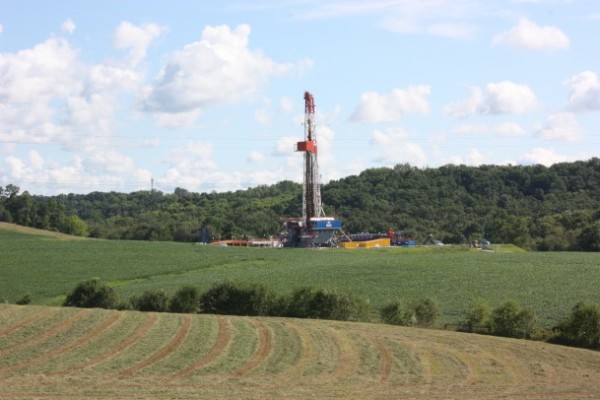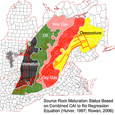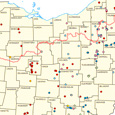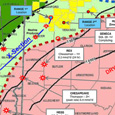Webinar to explore where fracking water goes in shale-gas production
Friday, February 13, 2015

UNIVERSITY PARK, Pa. — When hydrofracturing of a shale-gas well occurs, millions of gallons of water is injected deep underground at high pressure. Normally, only a fourth to a fifth of that volume flows back above ground. Where does the rest of it go?
That will be the topic of a free, Web-based seminar offered by Penn State Extension’s Marcellus Education Team, from 1 p.m. to 2 p.m. on Feb. 19.
The webinar, “The Fracking-Water Nexus: Issues Encountered by Industry,” will feature Terry Engelder, Penn State professor of geosciences and a leading authority on the shale-gas play. He will discuss research on residual treatment water in shale-gas development and production.
Engelder will cover many of the questions the public asks about why there is such a large difference between the volume of water injected during “fracture stimulation” and the amount of flow back.
“Typically, approximately 5 million gallons are injected to frack a well, and just about 1 million gallons flows back up,” he said. “The major questions the public asks are, ‘Where does the extra 4 million gallons go, and will that 4 million gallons somehow contaminate drinking water?’ We’ll address those in this webinar.”
Register online
While the webinar is free, registration is necessary. To register online, go to the Penn State Extension Natural Gas Events page at http://extension.psu.edu/naturalgas/events. For more information, contact Carol Loveland at 570-320-4429 or by email at cal24@psu.edu.
Other webinars
Penn State Extension’s Marcellus Education Team provides monthly webinars on a variety of topics. The next webinar, “Natural Gas Liquids: From Wellhead to Fractionation,” will be presented on March 19 by Dan Brockett, educator on Penn State Extension’s Marcellus Education Team.
Previous webinars, publications and information also are available on the Penn State Extension natural-gas website (http://extension.psu.edu/naturalgas), covering a variety of topics, such as Act 13; seismic testing; air pollution from gas development; water use, quality and recycling; natural-gas liquids regional development; natural-gas reserves; gas-leasing considerations for landowners; legal issues surrounding gas development; and the impact of Marcellus gas development on forestland.




